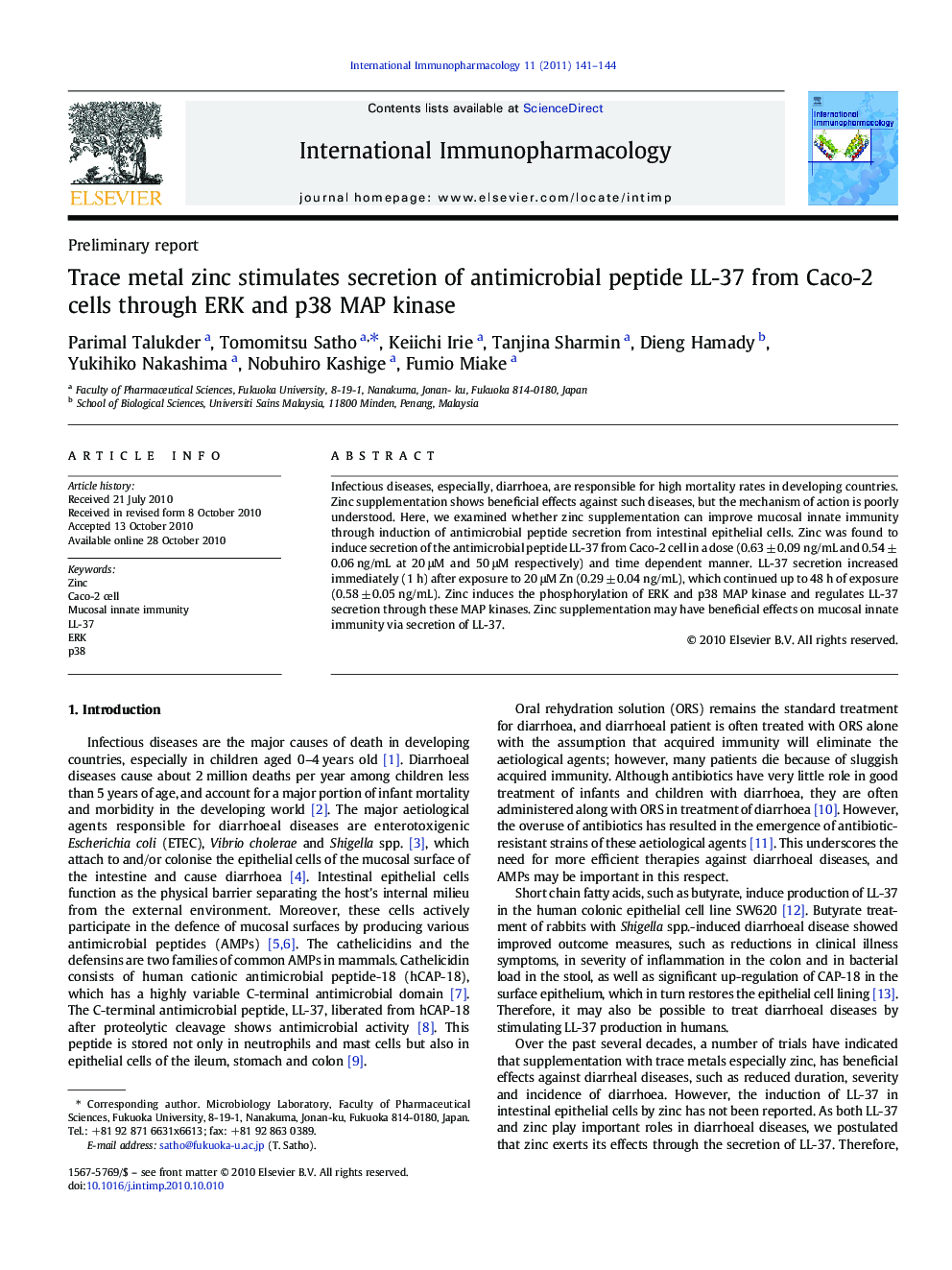| Article ID | Journal | Published Year | Pages | File Type |
|---|---|---|---|---|
| 2541186 | International Immunopharmacology | 2011 | 4 Pages |
Infectious diseases, especially, diarrhoea, are responsible for high mortality rates in developing countries. Zinc supplementation shows beneficial effects against such diseases, but the mechanism of action is poorly understood. Here, we examined whether zinc supplementation can improve mucosal innate immunity through induction of antimicrobial peptide secretion from intestinal epithelial cells. Zinc was found to induce secretion of the antimicrobial peptide LL-37 from Caco-2 cell in a dose (0.63 ± 0.09 ng/mL and 0.54 ± 0.06 ng/mL at 20 μM and 50 μM respectively) and time dependent manner. LL-37 secretion increased immediately (1 h) after exposure to 20 μM Zn (0.29 ± 0.04 ng/mL), which continued up to 48 h of exposure (0.58 ± 0.05 ng/mL). Zinc induces the phosphorylation of ERK and p38 MAP kinase and regulates LL-37 secretion through these MAP kinases. Zinc supplementation may have beneficial effects on mucosal innate immunity via secretion of LL-37.
